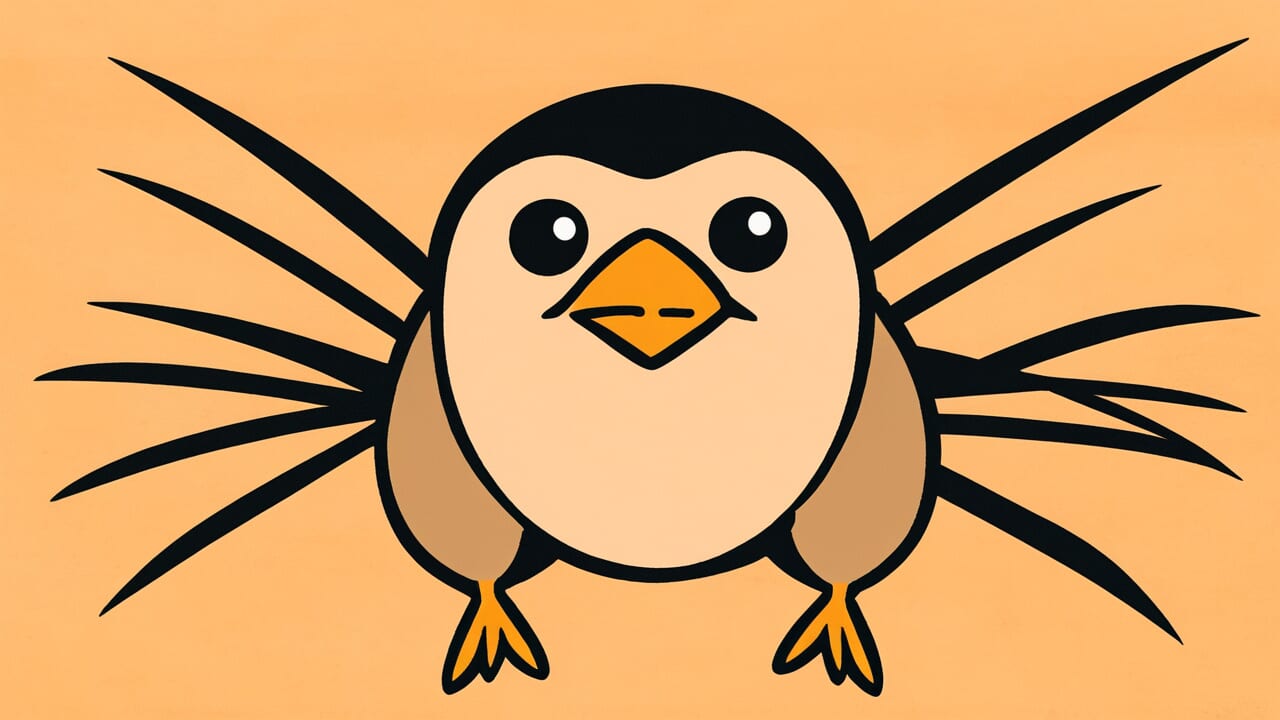How to Read “The hawk that catches prey bows its head”
Asuka no itaru ya sono koube wo fusu
Meaning of “The hawk that catches prey bows its head”
This proverb means that those with true strength or exceptional talent act modestly and avoid drawing attention to themselves in everyday life.
When an important moment arrives, they unleash their hidden power all at once. This describes how genuine masters carry themselves.
People use this saying when praising someone who is humble yet highly capable. It also applies to quiet people who show their strength in crucial situations.
Teachers use it to remind young people that real ability calls for humility, not boasting.
Even today, truly excellent people earn respect by not bragging and showing their skills only when needed.
This proverb captures the virtue of being modest while possessing real strength. It uses the image of a hunting bird to express this ideal.
Origin and Etymology
This proverb likely comes from ancient Chinese classics. “Asuka” means birds flying high in the sky.
“Itaru” describes birds of prey catching their targets. “Fusu” means to lower one’s head.
The structure creates a striking contrast. A powerful bird soaring freely through the sky lowers its body and bows its head when catching prey.
This posture is not just a physical movement. It symbolizes how true masters should behave.
Watch birds of prey hunt and you’ll see them dive low toward their target. They eliminate all unnecessary movement.
This natural principle became a metaphor for how the strong should act in human society.
Ancient China had a tradition of drawing life lessons from bird behavior. Birds of prey especially drew attention.
Despite their overwhelming power, they take what looks like a humble posture when hunting. This made them ideal symbols of true strength.
After reaching Japan, this saying resonated with the spirit of bushido. It connected with the idea that real masters should be modest in daily life.
Usage Examples
- He’s usually quiet, but like “the hawk that catches prey bows its head,” he shows overwhelming persuasive power during presentations
- That senior is exactly like “the hawk that catches prey bows its head”—always modest but becomes a different person in competitions
Universal Wisdom
This proverb reveals a universal truth about human nature. True strength is not something to show off constantly.
It should be displayed only when necessary. This reflects a deep understanding of humanity.
Why have people across cultures and throughout history idealized this kind of modest strength?
Humanity learned from experience that societies become unstable when the powerful constantly flaunt their power.
When truly strong people remain humble, harmony is maintained. Their power becomes most effective when it matters most.
This wisdom is essential for stable and thriving societies.
The proverb also touches on the essence of human psychology. No one can operate at full power all the time.
Conserving energy and releasing it at the right moment creates sustainable strength.
Like birds of prey storing energy until they spot their target, humans achieve better results by staying modest daily and focusing power when it counts.
The saying reveals an even deeper insight. It shows the difference between “fake strength” and “real strength.”
People who constantly act tough might actually lack confidence. Those with genuine power feel no need to prove it.
Our ancestors saw this truth about human psychology reflected in the behavior of birds.
When AI Hears This
A high-flying bird lowering its head when facing threats is a classic example of “niche shift” in ecology.
A niche is the ecological position an organism occupies. High places offer good visibility and easy access to food.
But when the threat of arrows appears, that advantage reverses instantly.
What’s interesting is that this “movement from high to low” appears throughout ecosystems as a common pattern.
Galapagos finches, for example, feed at various heights on islands without competitors. On islands with competing species, they get pushed to specific heights.
Whether an organism can occupy the optimal location depends not just on its abilities but on environmental threat levels.
Note that this movement is “forced,” not “adaptive.” The bird doesn’t prefer lower areas.
It moves there based on survival probability calculations. If staying high means a 50 percent chance of being shot, moving low increases survival odds even if food is harder to find.
This proverb illustrates dynamic equilibrium. Advantageous positions aren’t permanent.
The optimal solution changes with environmental threat levels. In ecology, choosing “the place where you survive best” matters more than “the strongest place.”
Lessons for Today
This proverb teaches you something important for our social media age. In a time when people constantly promote themselves online, real ability should be developed quietly.
Don’t chase likes and attention constantly. Value the time you spend building genuine strength inside yourself.
At work or school, you don’t need to rush to show results. Your daily steady efforts might feel invisible to others.
But that’s exactly what builds your true power. A moment will come when your strength is truly needed.
When that happens, everything you’ve accumulated will naturally shine through.
The key is not comparing your growth to others. Like a hawk quietly storing energy until the moment to strike, you can develop your strengths at your own pace.
Being humble isn’t weakness. This proverb teaches that humility actually shows confidence.
Trust the power sleeping inside you. Don’t rush. Keep moving forward steadily.



Comments